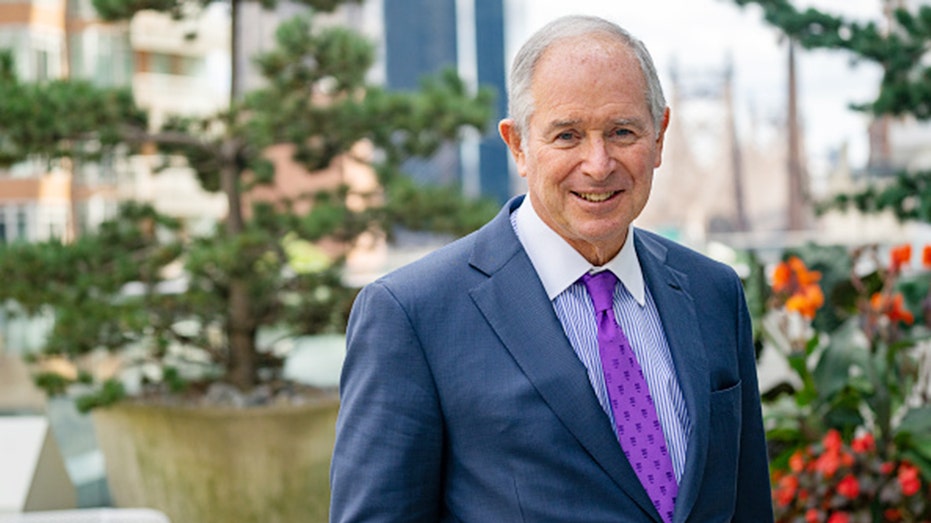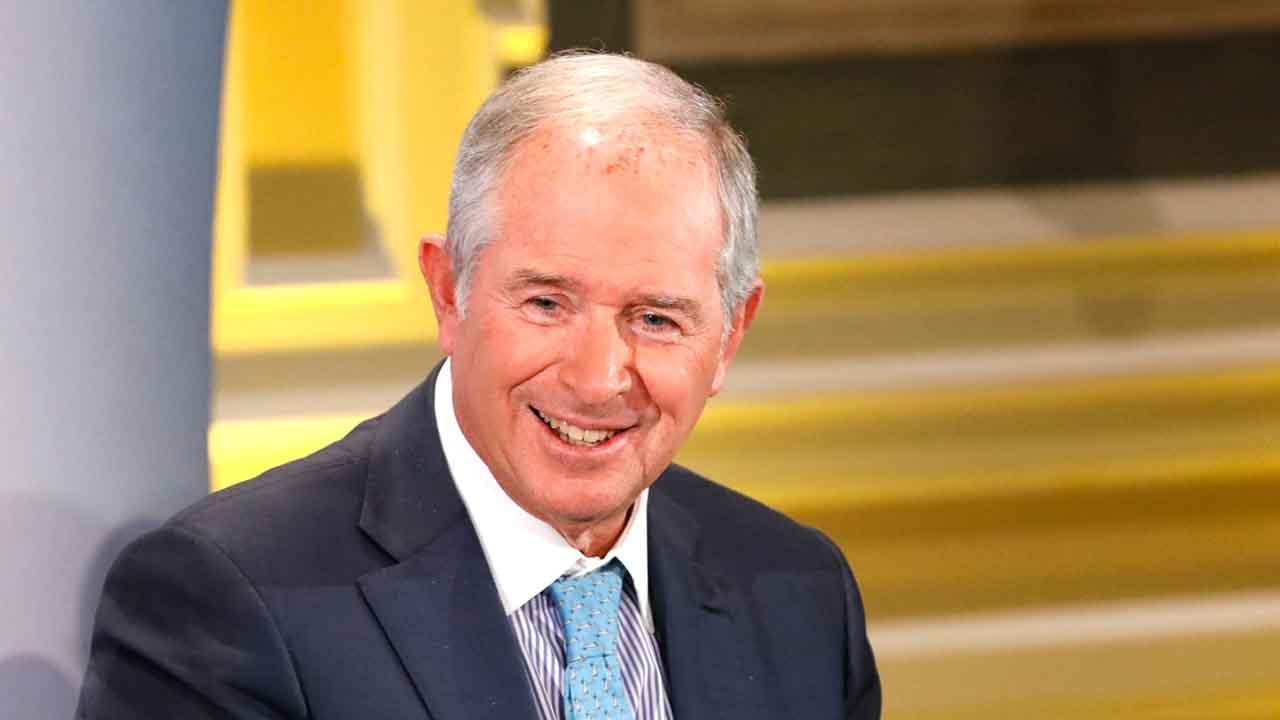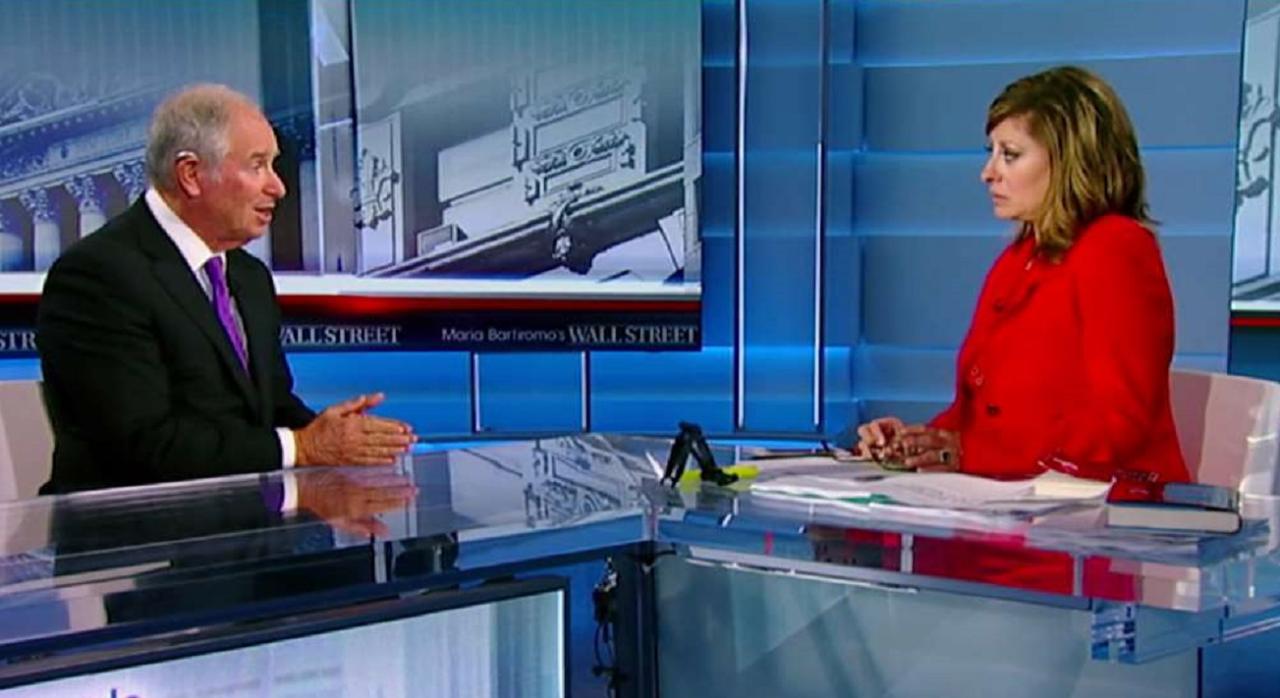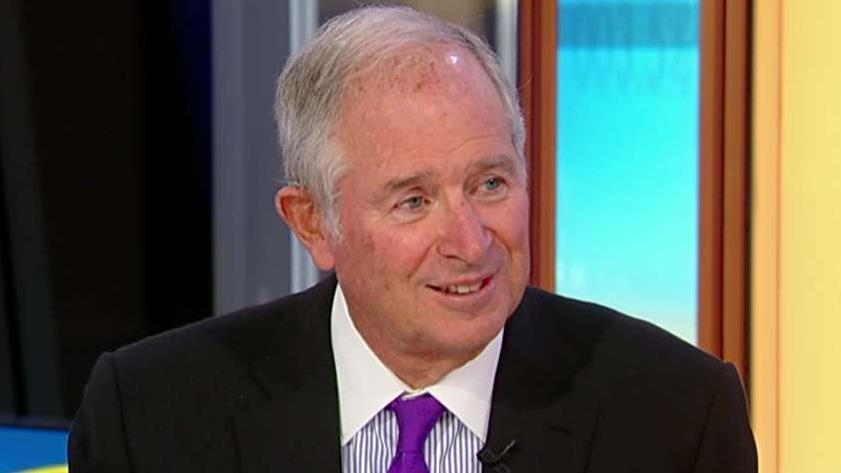How Blackstone CEO Stephen Schwarzman's $330M mistake improved the company's investment process
In 1989, Stephen Schwarzman led Blackstone to buy Edgcomb Corp. for $330M -- before Edgcomb became unprofitable
Blackstone Group CEO Stephen Schwarzman has made countless successful business deals, but one that he remembers most vividly was a failure -- an expensive one, at that.
Today, Blackstone Group is one of the largest private equity firms in the world, but in 1989, it was still a young company.
That year, a steel manufacturer, Edgcomb Corp., was up for sale. A new Blackstone partner who had a good relationship with Edgcomb’s executives was able to give Blackstone an “exclusive first look at buying it,” according to an essay Schwarzman wrote for Forbes last fall.
Edgcomb appeared to be doing well with good potential for growth. The company was asking for $330 million and Schwarzman thought it would be a good deal.
Another partner disagreed and told Schwarzman he thought Edgcomb was only making money from inventory profits. He predicted that once that reversed, Edgcomb "would get into enormous financial difficulty," Schwarzman told FOX Business.
Schwarzman decided to go for the deal anyway, but unfortunately, the second partner ended up being right.
BLACKSTONE'S STEPHEN SCHWARZMAN PRACTICES PHILANTHROPY FOR THE LONG HAUL
Schwarzman, who is now 73, told FOX Business it only took two or three months before he knew the deal had been a mistake.
“The price of steel had peaked and was starting to go down and the company started reporting results that were not what they had predicted,” Schwarzman said. “The company really started underperforming and then started losing money and then lost increasingly large amounts of money, and I became aware we wouldn’t be able to make our principal and interest payments. And then we were in a world of complete crisis.”
In the middle of that crisis, an investor called Schwarzman to his office in Nyack, New York, according to his Forbes essay.
"He proceeded to scream at me and told me I was one of the dumbest people he ever met," Schwarzman told FOX Business. "It seemed to me that that lashing -- tongue lashing -- went on almost forever."
Schwarzman said that as the investor yelled, he felt his face getting hot, like he was going to start crying.
"It was actually very difficult to disagree with him from my perspective because he's right, I failed," Schwarzman said. "It was my decision, it was my fault. It was my lack of experience. It was my inability to recognize what kind of system had to be set up appropriately to protect capital."
"I was so ashamed of the outcome," he added.

Schwarzman in 2019. (Photographer: David 'Dee' Delgado/Bloomberg via Getty Images)
Once the investor stopped yelling, Schwarzman apologized and left the office. As he was about to get into his cab, he told himself: "This is never going to happen again. I will never be in this position again. We can never lose capital. We must figure out how to not allow this to happen."
HOW JPMORGAN’S JAMIE DIMON WENT FROM BEING FIRED TO BECOMING A TOP LEADER IN BANKING
Today, Schwarzman calls the Edgcomb buyout Blackstone's "most important deal" because of how it "led, to a substantial degree, to the dramatic change in how we approach things," he said.
"What I've tried to teach people is that you don't learn an enormous amount from successes, because they're sort of intuitive," Schwarzman said. "But what you learn the most from are failures. And any individual or any organization that does not look at all the reasons why some situation resulted in failure is keeping alive the opportunity for more failures."
Blackstone was able to sell Edgcomb, which had become completely unprofitable, but afterward, Schwarzman made sure to put specific processes in place before Blackstone made future deals.
He made sure to think about “every element of how you make an investment," he said, including making sure to not favor one or two people.
"Everybody has to speak at the meeting," Schwarzman said. "Nobody sits there and just watches what happens. And we've refined that process so that everyone who's engaged in that decision making can speak freely, openly, honestly. And we can focus on the drivers not only that make something successful, but lead to loss."
“We debate every one of those major risk factors and we put probabilities on them and we see which one of those factors correlates with each other, because sometimes if one thing goes wrong, something else you thought was going to go wrong goes much, much worse because of the first thing going wrong,” he added. “And as a result of that, we've ended up with a fantastic record over time. And that is all attributable to the loss and Edgcomb.”
GET FOX BUSINESS ON THE GO BY CLICKING HERE
On Thursday, Blackstone reported its second-quarter results for 2020, which showed the company’s value increased by 12.8 percent, after it declined by 21.6 percent in the first quarter of the year, the Dow Jones Newswires reported.
The company’s net income was $568.3 million in the second quarter, compared to a profit of $305.8 million last year, the report said.
According to the report, Blackstone has a goal of reaching $1 trillion in assets by 2026. Currently, the firm reportedly has $564 billion in assets.
| Ticker | Security | Last | Change | Change % |
|---|---|---|---|---|
| BX | BLACKSTONE INC. | 129.69 | +2.87 | +2.26% |
Schwarzman, who co-founded Blackstone in 1985, is still the CEO and chairman of the company. Last year, he published his first book, "What It Takes: Lessons in the Pursuit of Excellence," about his business experiences and life.
He is estimated to be worth $19.1 billion, according to Forbes' real-time net worth calculator.
CLICK HERE TO READ MORE ON FOX BUSINESS

The Winning Formula tells the stories of business leaders who have overcome challenges — every Sunday on FOX Business.
A previous version of this article was edited to clarify in the sub-headline that Blackstone's Edgcomb deal happened in 1989.






















